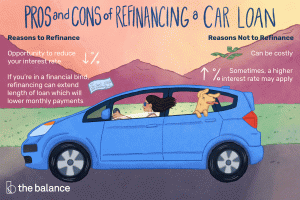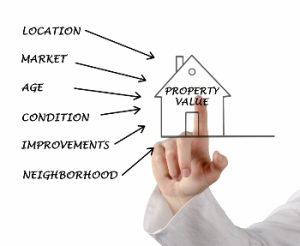Should You Refinance Your Car before Buying a House?
Go Back To Previous PageFor many Americans, the “American Dream” includes owning a home. And for many of us, that dream starts with taking out a mortgage. But what if you already have a car loan? Should you refinance your car loan before buying a house? How does refinancing a car loan work? Both options have pros and cons, and your choice will depend on your financial situation. Refinancing your car loan before buying a house can help you save money on interest and may make it easier to qualify for a mortgage. But it can also extend the length of your car loan and may increase your monthly car payments.
you already have a car loan? Should you refinance your car loan before buying a house? How does refinancing a car loan work? Both options have pros and cons, and your choice will depend on your financial situation. Refinancing your car loan before buying a house can help you save money on interest and may make it easier to qualify for a mortgage. But it can also extend the length of your car loan and may increase your monthly car payments.
Buying a house is a big decision; there’s no right or wrong answer when refinancing your car loan first. But if you’re considering purchasing a home shortly, it’s worth considering the pros and cons of both options to see what makes the most sense.
Before purchasing a home, find out if refinancing your auto loan for a lower interest rate is a wise decision. When buying a house, it’s important to keep in mind the financial responsibility and the possibility of needing a mortgage. If you have an auto loan and are thinking of refinancing, you may be unsure if refinancing your car loan before purchasing a home is the right choice.The Pros of Refinancing Your Car Loan Before Buying a House
1. You may save money on interest
Getting pre-approved for a loan is one of the most brilliant things you can do when buying a car. It gives you the upper hand in negotiations with the dealership and lets you know exactly how much car you can afford.
If you have a high-interest rate on your current car loan, refinancing before buying a house can save you money on interest. Refinancing at a lower interest rate will reduce the interest you pay over the life of your loan and could also lower your monthly payments.
To maximize your savings even further, consider exploring the best high-yield savings account rates available to help grow your funds for future financial endeavors. Either way, getting pre-approved for a loan is a smart move that can save you money and set you on a path to financial success.
Either way, getting pre-approved for a loan is a smart move that can save you money.
2. Better Approval Chances with a Lower Debt-to-Income Ratio
Lenders consider your debt-to-income ratio one of the most critical factors when approving or denying your loan application. This is the percentage of your monthly income that goes towards debt payments. Mortgage lenders typically like to see a debt-to-income ratio below 36%, so if yours is higher, you may have trouble getting approved.
Refinancing your car loan is one way to lower your monthly payments and get your debt-to-income ratio in a more favorable range. You can choose a longer loan term when refinancing, reducing your monthly expenses.
You can also shop around for a lower interest rate, which will reduce the interest you pay over the life of the loan. If you plan on buying a house soon, refinancing your car loan is a smart move that can help you improve your chances of getting approved for a mortgage.
3. You may be able to shorten the length of your loan
Refinancing your car loan can be a great way to save money on interest and reduce your monthly payments. When you refinance, you essentially take out a new loan with a lower interest rate and use the proceeds to pay off your existing loan. This can help you save money on interest over the life of the loan and may also make your monthly payments more manageable.
In addition, refinancing can also help you get a better deal on your car insurance. If you have a higher interest rate on your loan, your insurance company may require you to carry collision coverage, which can add to the cost of your policy. By refinancing at a lower rate, you may be able to drop this coverage and save money on your car insurance premiums.
The Cons of Refinancing Your Car Loan Before Buying a House
1. You may extend the length of your loan
If you’re currently close to paying off your car loan, refinancing can reset the clock and extend the length of your loan. This can cost you more interest over time and may increase your monthly payments.
2. You may have to pay fees
When refinancing your car loan, you may have to pay specific fees, such as an origination fee or a prepayment penalty. These fees can add to the cost of refinancing and may reduce the overall savings you’ll achieve.
3. Your credit score may dip temporarily
When you refinance your car loan, your credit score may dip temporarily. This is because opening a new loan account will result in a hard inquiry on your credit report. However, the impact on your credit score should be minimal and improve over time as you make on-time payments.
If you decide to refinance your car loan, the lender will conduct a hard credit check on you, which can cause your credit score to decrease. This can make obtaining a mortgage more difficult if your credit is not good. However, it is essential to note that this drop in credit is temporary and will improve as you make timely payments.
4. More Paperwork
Refinancing a car means obtaining a new loan to settle the previous one, which will be reflected in your credit report. If you plan to apply for a mortgage, the new credit account might raise concerns from your mortgage lender. Along with the usual documentation required for a home mortgage application, the lender might request a letter elucidating the reason for the new account and the rationale behind opening it.
5. Impact on Debt-to-Income Ratio (DTI)
If you refinance your car loan, you can modify your monthly payments by extending the loan term or reducing the interest rate. Besides that, refinancing can also lower your debt-to-income (DTI) ratio. When mortgage lenders evaluate your eligibility and the amount they will lend you, they consider your DTI. A lower DTI increases your chances of getting approved, so decreasing it by refinancing your car loan can be beneficial.
The Bottom Line
There’s no right or wrong answer when refinancing your car loan before buying a house, and the best option for you will depend on your financial situation and goals. If you’re considering refinancing, compare offers from multiple lenders to find the best rates and terms. And be sure to weigh the pros and cons carefully to decide if refinancing is right for you.
Just as with getting your home ready for resale, you may need to take some time to renovate your credit and budget before you can jump on your next opportunity.
When and When Not to Refinance an Auto Loan Before a Home Purchase
Deciding whether to refinance your auto loan before purchasing a home requires careful consideration of your financial situation. If you have a high DTI and a strong credit score, refinancing your auto loan first could be beneficial. This move may lower your DTI and prevent a significant impact on your credit score.
However, if you already qualify for a mortgage with favorable terms based on your current income, credit score, and DTI, it might be best to wait until after buying your home to refinance your auto loan.
Ultimately, the best course of action depends on your unique circumstances.


